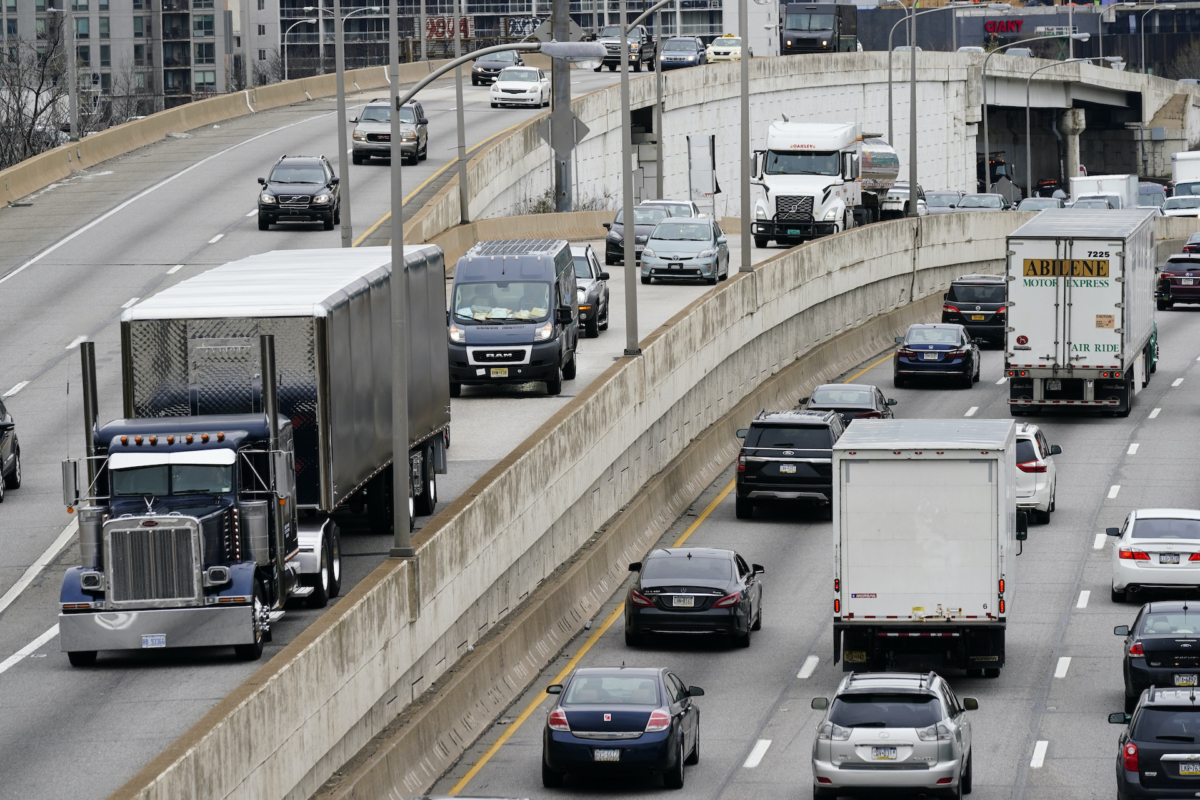


Multiple U.S. states are weighing policies to charge vehicle owners a fee based on the miles they travel as authorities seek to replace gas taxes, which have been declining for some time.
For more than a century, gas taxes have been a major source of revenue for state transportation funding. This has contributed to maintaining the country’s roads. According to a February 2020 white paper by the National Governors Association (NGA), motor fuel taxes make up 29–60 percent of state transportation funding. However, fuel taxes have been declining over the past years because of inflation, better fuel efficiency, and a shift toward electric vehicles, among other factors.
States are now scrambling to find an alternative solution to the problem, one of which is charging vehicle owners by the miles they drive.
The federal government is set to start a pilot program to analyze the proposal and has set aside $124 million from the infrastructure bill that President Joe Biden signed in November 2021. Last year, at least eight states considered bills aimed at taxing drivers of electric vehicles for the distance they cover.
Some of the programs seek to install devices in vehicles to measure miles driven, which has led to privacy concerns.
In an attempt to assuage such worries, Virginia enacted a law in 2022 stating that data collected for the pilot fee-per-mile program will not be used for any purpose other than to collect unpaid fees.
In its 2021 State Expenditure Report (pdf), the National Association of State Budget Officers warned that “states are concerned that in the long term, the current structure of state and federal fuel tax revenue will not be able to meet transportation needs as most gas taxes are set at fixed rates and do not rise with inflation.”
Since 1993, the federal per gallon tax has remained unchanged at $0.184. In 2021, the Congressional Budget Office projected that if the taxation system remains unchanged and spending on infrastructure rises according to estimates, the federal Highway Trust Fund will see a shortfall of up to $140 billion by 2031.
While states explore a per-mile road usage charge system, some experts are apprehensive about it. In an interview with the Associated Press, Eric Paul Dennis, a transportation analyst at the Citizens Research Council of Michigan, raised doubts as to whether a road usage-charge system will work in the United States, pointing to the failure of states to implement such a functional, mandatory program despite several years of research.
“There’s no program design that I have seen that I think can be implemented at scale in a way that is publicly acceptable,” he said.
“That doesn’t mean that a program can’t be designed to do so, but I feel like if you can’t even conceive of the program architecture that seems like something that would work, you probably shouldn’t put too much faith in it.”
At present, only three states are making revenue from road usage charges or mileage-based user fees: Virginia, Utah, and Oregon. In Colorado, home deliveries from Amazon and other retailers were assessed additional charges from last year to fund transportation projects.
One of the states that is testing out a pilot road usage-charge program is California. In October 2021, Democratic California Gov. Gavin Newsom signed into law Senate Bill 339, which approved an extended road usage charge pilot program effective through Jan. 1, 2027.
The program, which kicked off in March 2023, is meant to determine how the state can implement a road usage charge that will replace the gas tax.
The pilot study comes as a 2020 executive order by Newsom mandates that all new cars and passenger trucks sold in California by 2035 be zero-emission vehicles.
